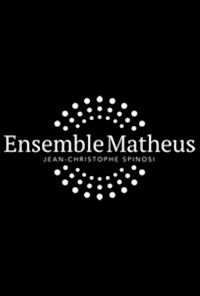
Le comte Ory (Count Ory), Rossini
Dalintis
Count Ory by Rossini, tre 20 vas 2013, Nuo (2013/2013), Režisierius Moshe Leiser, Patrice Caurier, Dirigentas Jean-Christophe Spinosi, Theater an der Wien, Vienna, Austria
Žiūrima aktorius ir komanda 20 vas 2013
Prodiuseris
Conductor
Stage director
Atlikėjai
Le Comte Ory
(Count Ory)
Le Gouverneur
(The Tutor)
Isolier
Raimbaud
La comtesse Adèle de Formoutiers
(Countess Adele)
Dame Ragonde
(Lady Ragonde)
Alice
Un coryphée
Mainfroy
Įgula
Set designer
Costume designer
Lighting designer
Ansamblis
Kita
Sužinokite daugiau apie kompozitorių
Sužinokite daugiau apie muzikinį darbą

